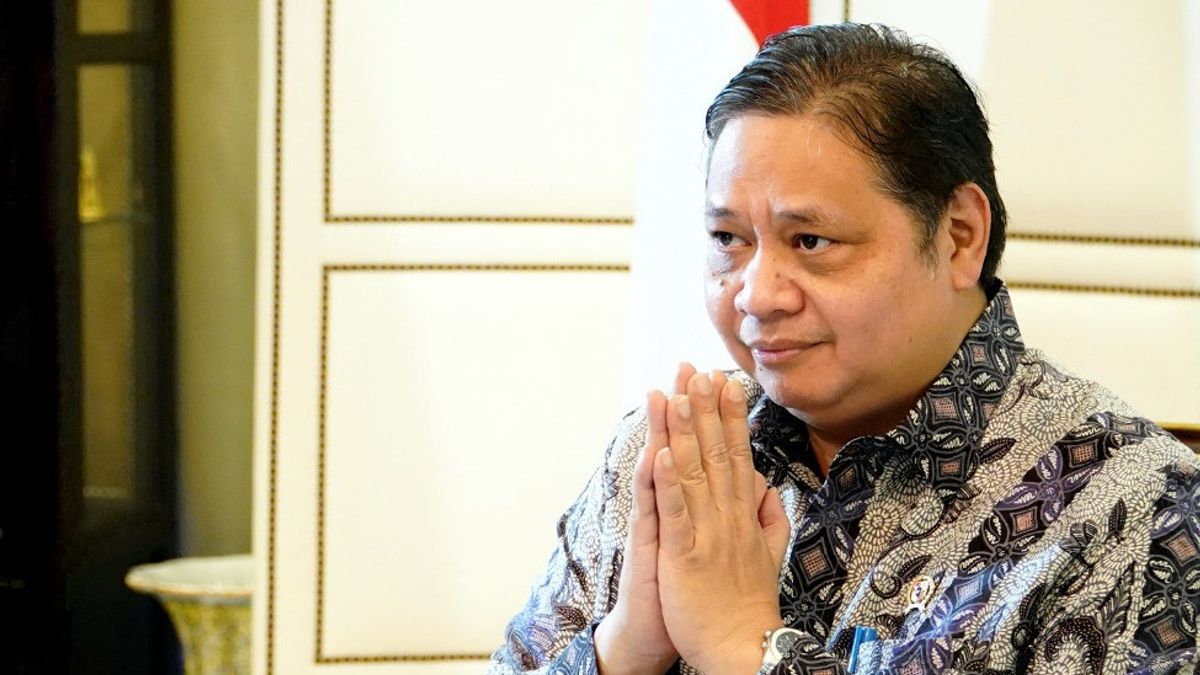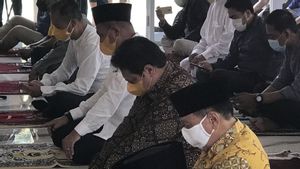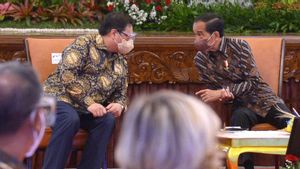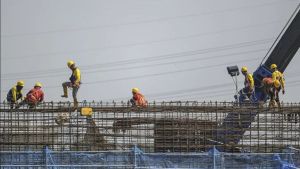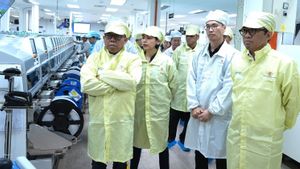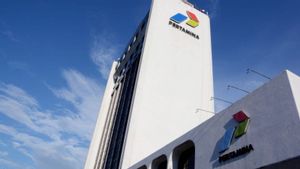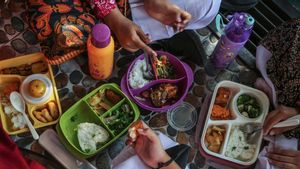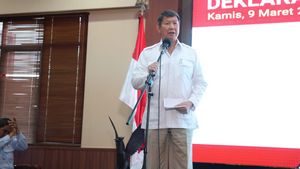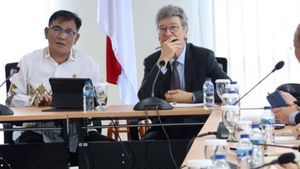JAKARTA - In various economic crises that have occurred, MSMEs have proven to have a high level of resilience. Likewise, during the COVID-19 pandemic, MSME business activities became one of the buffers in mitigating the surge in cases of delta variants so that the economy could grow by 3.51 percent (yoy).
Seeing the important role of MSMEs in the national economy, the government is committed to encouraging the empowerment of MSMEs so that they can advance to class and make a greater contribution to the economy.
President Joko Widodo (Jokowi) has also given directions regarding access to MSME financing to increase the portion of MSME credit to banking credit by at least 30 percent by 2024. Following this, Bank Indonesia has issued a Bank Indonesia Regulation which stipulates a minimum of 30 percent of MSME credit in year 2024.
In the interest of sharing knowledge and experience in developing MSMEs, Coordinating Minister for Economic Affairs Airlangga Hartarto has launched the MSME Financing Book which contains information on the development and important role of financing for MSMEs, as well as the Government's encouragement in increasing access to financing for MSMEs from time to time.
"MSMEs are an important sector with a contribution to GDP of 61 percent and also absorb a workforce of 97 percent of the total national workforce absorption. Total investment in the MSME sector has also reached 60 percent of total national investment and its contribution to national non-oil exports has reached 16 percent," said Coordinating Minister Airlangga, in a virtual review of the MSME Financing Book, Wednesday, November 24.
Furthermore, Coordinating Minister Airlangga said that the MSME Financing Book also explained the lessons that Indonesia could learn from Japan and South Korea. The rapid increase in Japanese SMEs after World War II has succeeded in helping Japan's economic recovery.
This success was achieved through a good synergy of support from all stakeholders in Japan. Meanwhile, in South Korea, the key to success in developing SMEs is the creation of an integrated institutional ecosystem and government policies that encourage the improvement of the competitiveness of SMEs.
Coordinating Minister Airlangga on the occasion also explained that the financing of MSMEs since 1999 has been carried out by the government directly, either in the form of payment of the Guarantee Service Fee (IJP) and interest subsidies whose sources of funds come from channeling institutions, such as the People's Business Credit (KUR).
In addition, it is also supported by various guarantee activities from microfinance institutions and guarantees through Jamkrindo and Askrindo insurances.
During the COVID-19 pandemic in 2020, the government has provided an additional 6 percent interest subsidy so that the KUR interest rate becomes 0 percent. Then, it will be followed by an additional 3 percent interest subsidy in 2021, so that the KUR interest rate is only 3 percent until the end of 2021.
The government has also relaxed various requirements for KUR debtors during the pandemic so that it can facilitate distribution to debtors affected by the pandemic.
"With an interest rate of only 3 percent, it is able to become a buffer for MSMEs to continue their activities," said Coordinating Minister Airlangga.
SEE ALSO:
Coordinating Minister Airlangga then also explained that the Government also has a National Economic Recovery Program implemented during the pandemic and pays special attention to the MSME sector.
Various programs have been provided to support MSME business continuity, including Interest Subsidy, Placement of Government Funds at Partner Commercial Banks to support the expansion of working capital loans and MSME loan restructuring, MSME Working Capital Loan Guarantee, Banpres for Productive Micro Businesses, Cash Assistance for PKL and Warung, and incentives for Government-borne MSME Final PPh (DTP).
"The government continues to integrate the MSME financing system to support MSME empowerment and also accelerate national economic recovery. The government also continues to increase added value by strengthening entrepreneurship and of course encouraging MSMEs to have a better ecosystem," said Coordinating Minister Airlangga.
The government also provides social assistance programs in the form of Productive Banpres and Pre-Employment Cards that will help increase the number of productive micro and small businesses. Furthermore, coaching and development through the Partnership and Community Development Program (PKBL), as well as other CSR programs, will help unbanked MSME actors to advance to class and obtain better financing.
On this occasion, Coordinating Minister Airlangga also appreciated the organization of the MSME Financing Book Review.
"We hope that this book can be useful for the academic community and in particular for students to know what policies the government has implemented as well as benchmarks for what other countries are doing," concluded Coordinating Minister Airlangga.
The English, Chinese, Japanese, Arabic, and French versions are automatically generated by the AI. So there may still be inaccuracies in translating, please always see Indonesian as our main language. (system supported by DigitalSiber.id)
